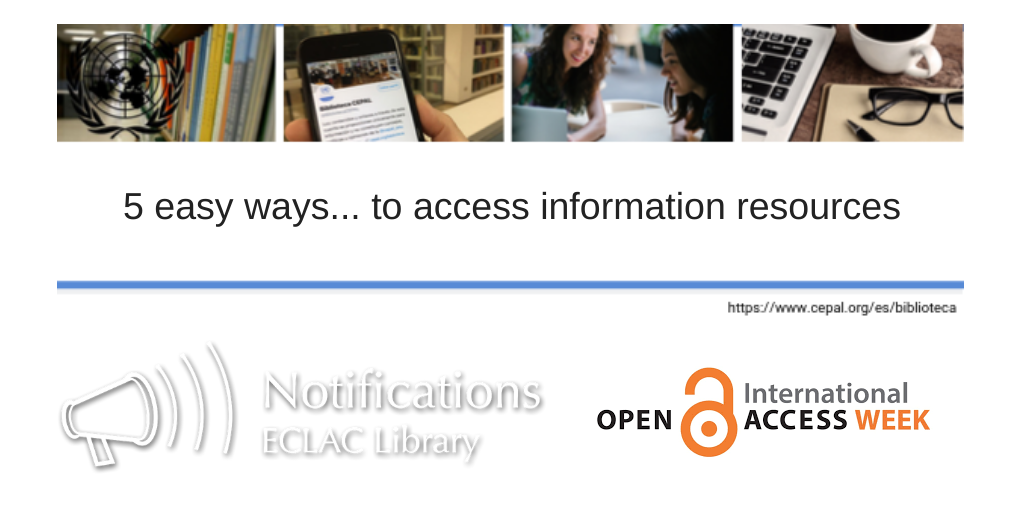ECLAC Library: Five ways to #Openaccess
Topic(s)
Taking advantage of Open Access Week, the ECLAC Library provided daily messages on how to access academic resources.

During Open Access Week (21-27 October), the ECLAC library provided daily reminders to patrons on the resources that are open and available for use through library services. Under the banner “Five easy ways” users were provided with daily prompts on one of the five ways that they could easily access scholarly resources.
In the first message, users were encouraged to configure the Google Scholar search engine to conduct scholarly searches in both the library and on the web simultaneously. The second message promoted Explora, a powerful metasearch engine recently launched by ECLAC that provides access to the electronic, print, multimedia and digital resources of various collections within the libraries of the United Nations. Thirdly, we reminded staff to visit the ECLAC Digital Repository which is managed by the Library. It which contains all of the publications of ECLAC since its founding in 1948. The repository facilitates free and open access to the Commission’s resources and is a key research tool for researchers within the region and around the world. The fourth message was aimed at promoting Library research guides. These guides are created by the library to enhance and simplify the research process for users by collating multiple sources of information directly related to the work areas of ECLAC. Lastly, patrons were encouraged to use the Ask Us library platform to direct complex information queries to the library team.
Open Access Week, observed under the theme “Open for Whom? Equity in Open Knowledge”, provided an excellent opportunity for the ECLAC Library to highlight resources useful in the conduct of scholarly research. Working as both a repository for ECLAC’s output and a source of access to authoritative information for ECLAC’s researchers, the ECLAC library team always ensures that information is organised, accessible and available to all.
As highlighted in SDG 16, access to information is a human right and open systems help address inequities in information access. According to Wouter Schallier, Head of the ECLAC Library and Chair of UN LINKS “You would think that everybody has access to information in this digital world – well, this is not the case”. He shares these thoughts during the recently concluded UN-LINKS https://youtu.be/IS8Kzy_Y_J8?list=PLNEC7NhwHQrTWIe3Es2yKv3V9ftYNnGbg
Follow us in Twitter @BibliotecaCEPAL #OAWeek #OpenAccess